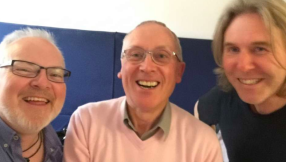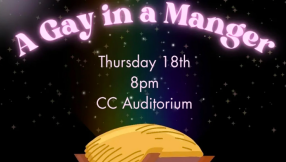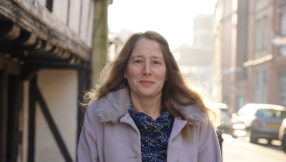The release of Vicky Beeching's book Undivided has been accompanied by media interviews, a piece in the Sunday Times and other online and broadcast material. The book tells the story of her life as a teenager and then adult, struggling with marrying up her evangelical theology and emerging sexuality.
Despite an international career as a songwriter, recording artist and worship leader – her songs are still sung in many churches around the world – she eventually found the struggle too much and she attributes her auto-immune illness in her late 20s to this stress.
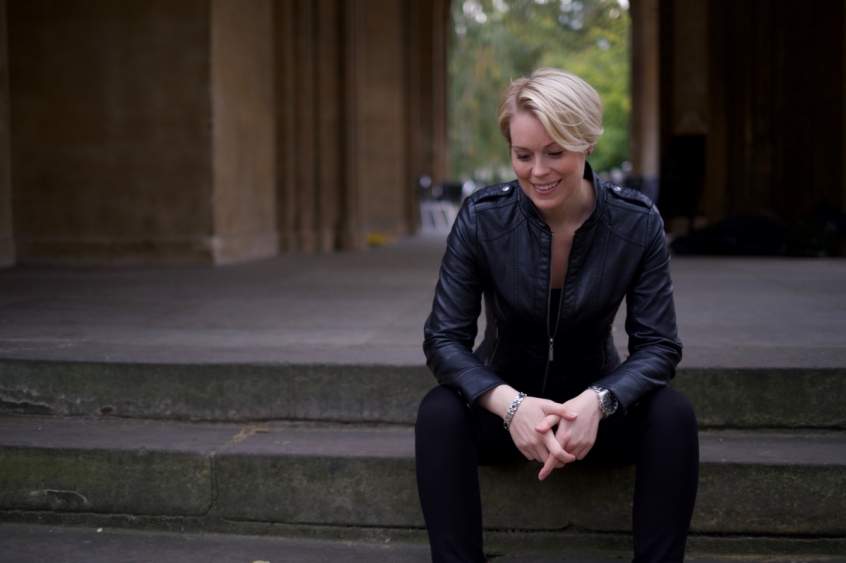
Since coming out four years ago Beeching has become an advocate for a revisionist position on sexual activity in the evangelical world. She will continue to be an important voice in the conversation in the Church of England on this topic, which continues to bubble under the surface as the House of Bishops' working groups prepare a new teaching document and produce other supporting material.
However, I want to think about some of the issues Beeching raises in the sub-title to her book and how the conservative wing of the Church can approach them.
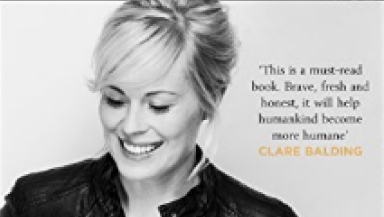
The full title of her book is Undivided: Coming Out, Becoming Whole, and Living Free from Shame. It strikes me that that subtitle is worth exploring more because it raises themes that do not necessarily mean that a revisionist agenda has to be held.
There is nothing in coming out, being honest about your sexuality and find a life that isn't lived in shame that has to ultimately end in changing core Christian theology. There are plenty of evangelicals – me for one – who are not heterosexual but have no problem in being open about that fact and are not ashamed of it. The theologian and writer (and former gay activist) David Bennett is another and his book The War of Loves will be published in the autumn. In it he narrates his life story and how he came to a different conclusion than Vicky Beeching, having at first been very happy with a liberal gay identity.
Perhaps we might think about other gay Anglicans who are very open about their sexuality but comfortably take a conservative position on sexual practice and marriage. We might think of Dr Sean Doherty, ethics professor at St Mellitus college and a parish priest in Kensington (and whose wife Gaby has just published a powerful book of stories about the community there in the year after the Grenfell Tower fire) who has written and spoken on this issue and his personal journey.
From a more conservative evangelical perspective Vaughan Roberts, the rector of St Ebbes in Oxford, has been open about sexuality and Sam Allberry has spoken extensively on this subject, becoming a main stage speaker at many events in the UK and the USA. Sam is, though I hesitate to use the term, rapidly being seen as a leading evangelical voice on this topic.
Are these men (and it does seem in the Church of England to be mainly men) simply repressing their sexuality, bottling up their real emotions and heading for an emotional crisis? I think we should let them speak for themselves and when they do so we find that they are actually incredibly emotionally healthy. So why is this?
When I look at stories of gay people who have moved from a conservative to a revisionist perspective on this issue, I find two common themes. The first is a story of secrecy and not being able to be open about one's sexuality. This leads, as you would expect, to internal emotional turmoil because the individual is constantly having to wear a mask and be in public someone they are not in private. You find this narrative very clearly in Beeching's book and it's painful to read. It's an experience shared by many gay, lesbian and bisexual men and women, regardless of their theology. The powerful liberating experience of coming out is not to be underestimated – it transforms a life of shame and secrets into one of openness and self-respect.
The second aspect I often read is some form of conversion attempt. By this I mean some therapy, or prayer or other similar exercise that was intended to change a person's sexual orientation. When this fails, as it normally largely does, the individual becomes despondent and confused. As I've written before, the key problem with these kinds of approaches is that they by necessity operate out of a framework where heterosexual attraction is morally superior to homosexual attraction, and frankly this is a concept we cannot find in the Bible. Rather the Bible's focus in this area is on specific sexual activity.
It's worth making a small excursus at this point to note that in some parts of the evangelical community this is a point of controversy. Some of the evangelical conservatives I've mentioned today are quite happy to call themselves gay, others use the language of 'same-sex attracted' because they think the language of 'gay' is either too politically charged or makes one's sexual attraction a core part of one's being when it isn't. I have to be honest and say that I don't see any real difference between 'gay' and 'same-sex attracted'. 'Gay' is less a prescriptive thing and rather honestly descriptive. I'm gay. You're gay. You're straight. You're bisexual. You have sexual attraction to minors. You are oriented like the vast majority of us to adults. You're into blondes, he's into brunettes.
Why is he into brunettes? Is it a genetic thing? A learned behaviour? A psycho-sexual response to some childhood trauma? Who knows? That's not the point. It's all simply language that describes our sexual and emotional attractions but doesn't necessarily have to be prescriptive. To be 'gay' or 'bisexual' or whatever is descriptive of one's emotional and sexual basis but doesn't validate in and of itself any activities.
So back to Vicky Beeching's story. It's clear she bottled this up for two decades and that's an awfully long time to keep something like this secret. She also tells of some experiences of attempted change via prayer or other methods. I read this kind of experience very often in connection with coming out and taking a revisionist position and it's easy to see why. When all you've had are negative experiences around your sexual attraction, finding the capacity to be real about being homosexual and the pain it has caused is really important.
And this is something the evangelical church simply fails to do time and time again. Even today with so many gay conservatives being open about their sexuality, it is incredibly hard to stand up and say 'I'm gay' in the middle of an evangelical church teaching traditional orthodox theology. There is still too much suspicion, too much assumption. There is the fear about how you'll be received, whether you'll still be able to do the ministries that you were involved in. It's getting better in many places, but it's still a problem and needs to be addressed. You see the problem in the way that the tragic suicide of Lizzie Lowe (which might have been avoided if the church in question had taught clearly from the front that being gay was not in and of itself sinful) is currently being weaponised by liberals as a tool to promote revisionist teaching.
This is the point. The reason why Vicky Beeching couldn't continue her ministry wasn't because she came out, it was because she came out and accompanied it with a particular theological position. When Beeching chooses a title like Undivided she is actually playing a very clever game, because revisionists want to so conflate orientation and activity that in society's (and the church's) inability to divide them we find ourselves defending both because there is no other possibility.
This of course is the danger of the evangelical position which says its wrong to call yourself gay, even if you're chaste and teaching orthodoxy on this subject. What this stance actually does is fall for the 'undivided trap' by conflating all aspects of sexuality into one sinful whole in a way the Scripture never does.
If we want to prevent suicides of gay teens we need to start telling people very clearly that being gay is OK. If we want to help our church members not struggle with mental health issues around this when they are homosexual then we have to make sure they are comfortable being themselves and don't get told that if they changed they would be better. If we want to untangle the orientation and activity web that revisionists wind for us we have to clearly teach a theology of sex that is grounded in Scripture and sees the 'rules' God has laid down for us as having deep Christological meaning.
Furthermore, unless we have gay voices in the conservative church speaking clearly about these things it will always be a valid criticism of evangelicals that we like to pontificate about other people that we don't really know anything about. There is a gay voice in the evangelical church that can be undivided, undivided from Scripture, undivided from church social and moral teaching, undivided from the honest truth about our selves and our sexualities. The challenge for us is whether we want to listen to it and promote it, or whether we'll simply let the same heterosexual white older men tell us what to think about things they've never had to struggle with themselves.
At the moment the gay revisionist lobby is winning this debate because theirs is an authentic voice – it is their story, their personal narrative, their theology. If the evangelical church is serious about coming up with a better narrative, it has to be a genuine gay voice that shares it.
Rev Peter Ould is a Church of England priest based in Canterbury. He blogs at www.peter-ould.net.











